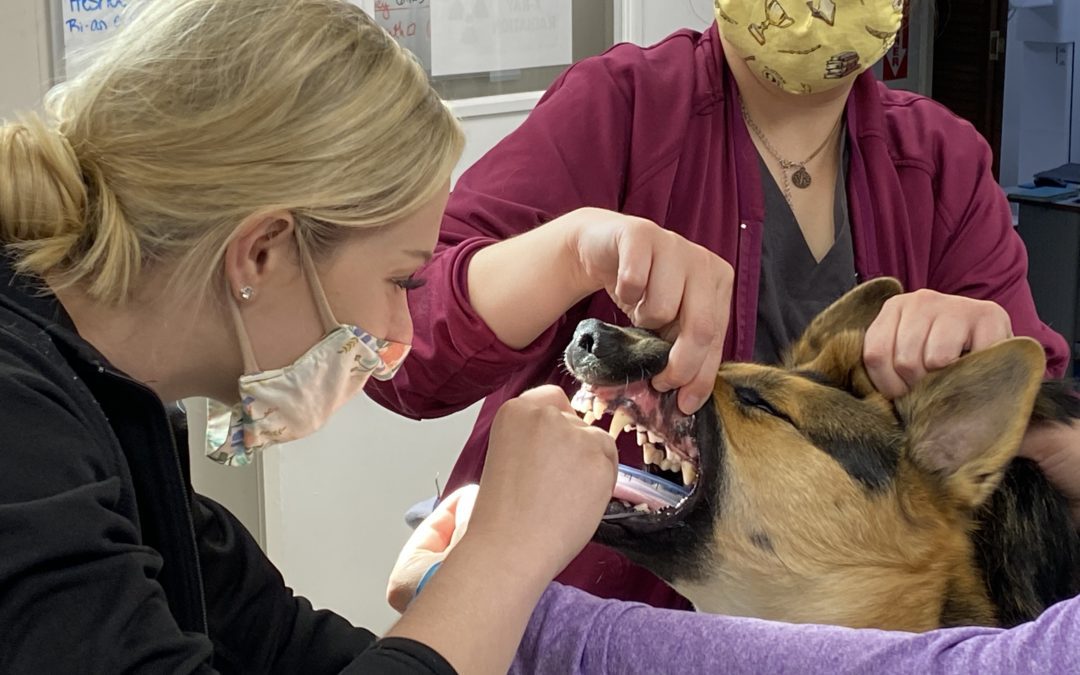Dental care is an important aspect of pet healthcare, yet it can be easily overlooked. Just like humans, pets can suffer from dental problems that can lead to serious health issues if not addressed in a timely manner. As pet owners, it is our responsibility to make sure that our furry friends receive proper dental care to keep their teeth and gums healthy. So let’s explore the importance of veterinary dental care for pets and what you can do to keep your pet’s teeth in tip-top shape.
Dental problems in pets can lead to a range of health issues, including gum disease, tooth decay and infections that can spread to other parts of the body. Poor dental hygiene can also lead to bad breath, difficulty eating and even weight loss. These issues can cause significant pain and discomfort for your pet and, if left untreated, can even shorten their lifespan.
It can be difficult to detect dental problems in pets, as they may not show obvious signs of discomfort. Some common signs to look out for include:
- Bad breath
- Discolored or loose teeth
- Difficulty eating or chewing
- Drooling
- Swelling around the mouth
- Decreased appetite
If you notice any of these signs, it is important to bring your pet to the clinic as soon as possible. Our veterinarians can examine your pet’s teeth and gums and determine if there are any underlying dental problems that need to be addressed. Our team may well recommend a dental cleaning for your pet.
A dental cleaning is an important part of your pet’s annual health care. During the cleaning, your veterinarian will examine your pet’s teeth and gums, looking for any signs of decay, gum disease or other dental problems. One of our licensed veterinary medical technicians may also take x-rays of your pet’s mouth to get a better view of the teeth and roots and determine if any extractions or other treatments are necessary. Using instruments similar to those used by human dentists, the technician will clean under the gum line to rid any bacteria living there and scale the teeth to eliminate the plaque and tartar build up there.
As you can imagine, your pet would never tolerate all of that work inside their mouth while awake. Therefore, it is necessary to fully sedate pets for dental cleanings. In fact, a veterinary dental cleaning can best be described as a complete surgical procedure. The veterinary team will place an IV catheter through which they administer drugs including anesthesia and pain medication. Your pet will be intubated with a breathing tube to ensure proper respiratory functions. After the pet goes under anesthesia, the team will monitor your pet’s vital signs throughout the dental cleaning. At any time during the dental cleaning, 2-4 team members may be assisting your pet.
In addition to regular veterinary check-ups and dental cleanings, there are steps you can take at home to help keep your pet’s teeth and gums healthy. Some tips include:
- Brush your pet’s teeth daily using a toothbrush and toothpaste specifically designed for pets.
- Offer your pet dental chews and toys to help keep their teeth clean.
- Feed your pet a balanced diet to help maintain healthy teeth and gums.
- Avoid giving your pet bones or other hard objects that can damage their teeth.
Proper dental care is essential for the overall health and well-being of your pet. Regular check-ups, cleanings and at-home care can help keep your pet’s teeth and gums healthy and prevent serious dental problems from developing. If you notice any signs of dental problems in your pet, it is important to bring them to the clinic as soon as possible to prevent the issue from becoming more serious. With the right care and attention, you can help keep your pet’s smile bright and healthy for years to come.
Pet owners who would like to discuss your pet’s dental health with one of the doctors here at Family Pet Health can schedule an appointment by calling 615-907-8387.

